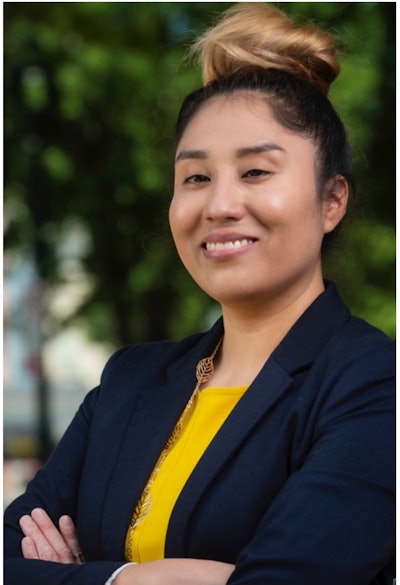Neoliberalism is the application of market ideologies in non-economic matters. For this piece, we identify the function and effects of neoliberalism on the relationships among graduate students and faculty. In higher education, neoliberalism manifests through the not-new concept of students-as-consumers, who “shop” for the best collegiate experience. Neoliberalism’s intrusion in higher education causes students to expect high return-on-investment; correspondingly, faculty are expected to be superhuman workers. Neoliberalism’s influence on higher education institutions leads to a consumer and customer satisfaction mentality which negatively affects faculty and the public good possibilities of postsecondary education. Precisely, the effect of commodifying education reinforces enrolled students’ entitlement and institutional leaders’ unreasonable expectations for faculty labor. Dr. Cathryn B. Bennett
Dr. Cathryn B. Bennett
As a team, we are a recent doctoral graduate, now administrator, and a faculty member, formerly a mentor and now colleague, to the first author; we have collaborated via mentorship, co-instruction, and co-research. These connections enliven our questions about navigating neoliberalism in higher education. Relatedly, we contend with the following questions: How can people within higher education collectively resist dynamics that position students as consumers, administrators as powerful bosses, and faculty as ideal workers? How can resistance to neoliberal positionings reinforce learning, academic rigor, and basic human decency?
The COVID-19 pandemic provides additional context to this line of questioning. Rightfully, many higher education institutions afforded pandemic-related circumstantial reprieves for students between March, 2020 and May, 2022. Students received virtual and hybrid courses, delays of customary academic probation processes, and institutional annotations to academic transcripts noting peak COVID-19-affected semesters. Relatedly, faculty learned new teaching modalities, initially online followed by high-flex, or some students in-person in classrooms while some attended synchronously online.
Now, though, COVID-19 vaccinations are readily available and the rates of deaths have decreased. Also, institutions of higher education are feeling (or imagining) pressure to return to pre-pandemic enrollment numbers and whatever “normal” means after surviving a global health crisis that exacerbated pre-existing social injustices long before. Many institutions are returning to in-person or maintaining high-flex instruction.
A lingering effect of these adjustments is an unsettling trend among graduate students for faculty, instructional staff, and graduate school policies to oblige every individual request; these realities coincide with higher education leaders expecting faculty to serve as untrained social and mental health workers. Importantly, we do not include students’ accessibility needs in reference to student demands; accessibility accommodations are necessary for equitable student learning. Instead, we problematize students’ expectations of fewer readings or omission of core curriculum courses related to successful completion of degrees, and simultaneous higher education leader expectations that posit faculty as suitable stand-ins for healthcare workers.
Overall, these patterns result in diluted rigor and transformative capacity among Ph.D. degree holders and their contributions in the space of higher education and especially situate faculty at the crux of institutional and student demands. Through the lens of neoliberalism, both students as consumers and institutions as “bosses” must be catered to through faculty docility and obsequiousness, waiting and eager to cater to all. Divergent beliefs about commodification of education are integral to our recent conversations and experiences about our collective noticings within higher education. Most notably, we have discussed the issues of students who embody a consumer mentality and administrators more interested in the institutions’ bottom line, concerned with retaining and recruiting students for institutional financial solvency, protected through reinforcing a student-as-consumer model, both of which are problematic for prioritizing learning. Dr. Delma Ramos
Dr. Delma Ramos
Neoliberalism in higher education functions to exacerbate consumerist satisfaction-based expectations from graduate students and administrators. Extending the language of economics, a return on investment mentality adversely contributes to these dual pressures on faculty labor. From the student perspective, students and/or their families financially cover expenses of college. Then, students who adopt the neoliberal mindset expect for their college education experiences to be customizable to enhance their individualistic satisfaction, without consideration or concern for the research and rationale behind say, reading lists or research methods course requirements.
Neoliberalism is everywhere in education and contributes to the students-as-consumers mentality and corresponding unrealistic expectations for faculty. Faculty become overextended by calls to do work unrelated to their training or expertise. Whether graduate students who demand an a la carte education or administrators who tack on dangerous and unrealistic demands for faculty, the result in both dynamics is a de-emphasis on learning. The overall effect of these dynamics is diluted rigor: learning is no longer an educational priority because it’s been replaced by customer satisfaction.
With these ideas in mind, we propose the following calls-to-action:
Reprioritize academics and recommit to providing students foundational skills for intellectual curiosity and critical thinking. Higher education can equip students to possess necessary knowledge to be well-prepared for the next steps in their lives rather than only focusing on pleasing them as educational “customers.”
Assert that academic obligations and timelines are non-negotiable and clarify them prior to admission. These requirements ensure students’ progression toward the degree, yet ad hoc adjustments for each individual student threatens student success. Establishing these standards clearly among students prevents learning from becoming diffuse at crucial milestones like comprehensive exams.
Empower and support students to activate their agency and ability to manage life as students and life beyond campus. For example, share university support systems information and mentor students on how to utilize them to support their academic success.
Reinscribe higher education’s public good potentialities. Divest from a corporate mentality of profits over people. College experiences predicated on consumerism and customer mentality socialize students to individualistic, over collective, priorities and commitments. Education’s public good involves exposure to multiple lived experiences. Attentiveness to these realities enhances students’ capacity for communitarian and collectivist perspectives as they transition away from colleges and onto their next life stages.
Humanize the faculty experience. Senior leaders must incentivize “other duties” beyond academic obligations. Faculty members have academic freedom to design and conduct courses, but higher education’s neoliberal tendencies are in direct tension with academic freedom. Students-as-consumers undermine faculty academic freedom and diminish their agency to prioritize student learning. This comes at the expense of academic rigor and collective learning.
Dr. Cathryn B. Bennett is Evaluation Leader for Every Campus A Refuge and Assessment and Research Analyst at the University of Delaware.
Dr. Delma Ramos is an assistant professor in the School of Education at the University of North Carolina Greensboro.


















